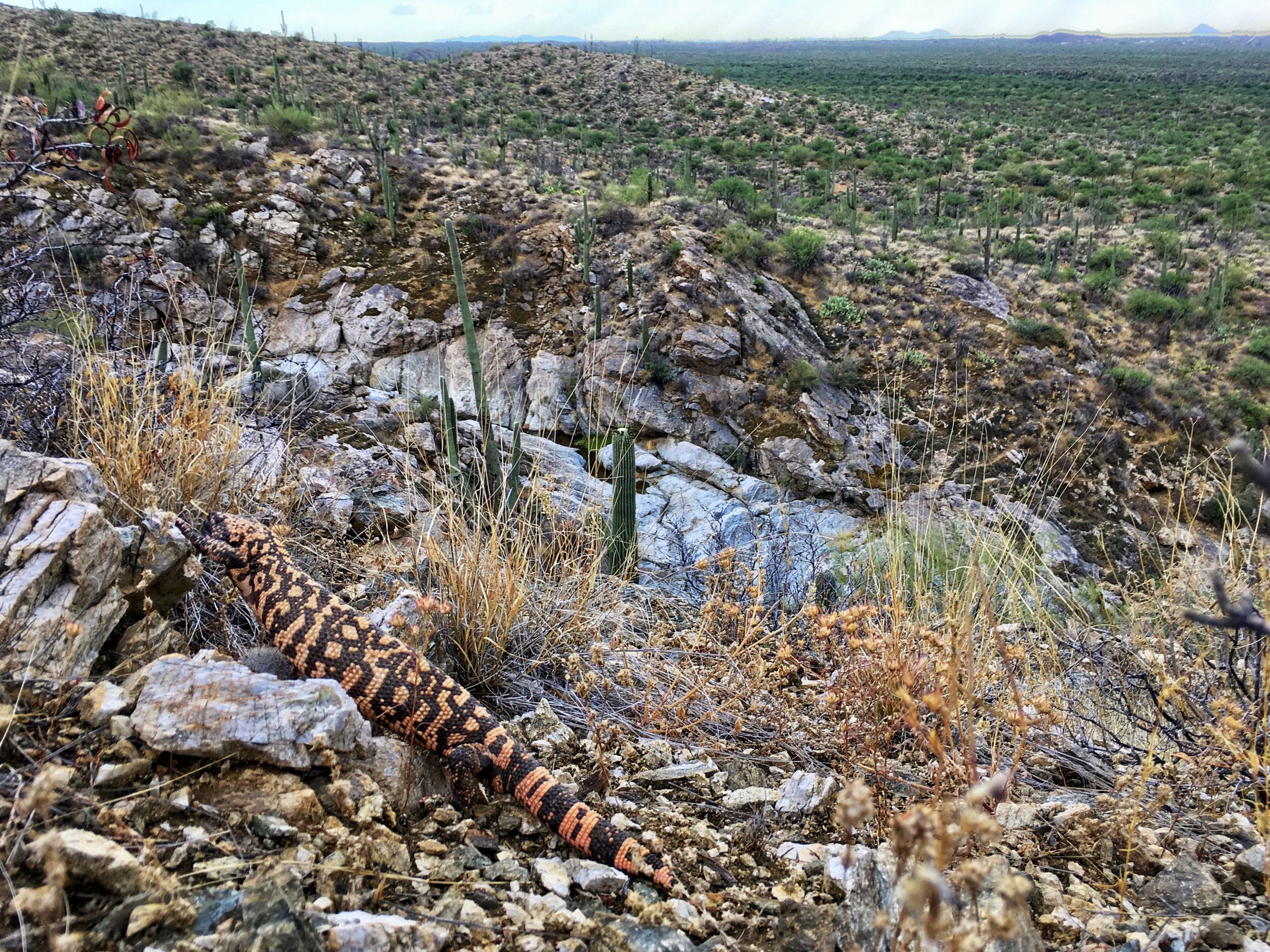Speed Hiking for Science
Backpacker (April 13, 2021) by Mary Beth “Mouse” Skylis
What does hiking 800 miles in less than two weeks do to your body? Ultrarunner and FKT holder Joe McConaughy hit the Arizona Trail to find out.
Thru-hiking a long trail is one of the harshest tests of endurance out there. Doing it in record time, like Joe “Stringbean” McConaughy did when he blazed through the 800-mile Arizona Trail in 13 days, 3 hours, and 21 minutes in late March and early April, is something else entirely. Now, with the help of researchers from the University of Massachusetts-Amherst, Notre Dame, and Duke University,, McConaughy is trying to quantify what a long, fast hike does to the human body.
McConaughy, 29, is an accomplished speed hiker who has set speed records on the AT, PCT, and Long Trail. Over the course of his supported hike on AZT, he collected regular health data for the researchers. Besides tracking his numbers through a fitness watch, McConaughy wore a heart rate monitor and gave twice-daily urine samples so scientists could track metabolic markers.
According to McConaughy, his research partners are trying to figure out how his body prioritized energy expenditure over his hike—basically, what it prioritized and sacrificed during his performance.
“What is his energy expenditure over his basal metabolic rate, and is his body able to maintain that effort level without sacrificing basic bodily functions that the parasympathetic nervous system usually exhibits?” McConaughy says. “Is he sacrificing gut health? Immune health?”As a dedicated ultra-runner, McConaughy wants to find out.
McConaughy knew from previous records that an endeavor like the Arizona Trail would put him through the wringer. On the Pacific Crest Trail, he battled achilles injuries. On the Appalachian Trail, his quad swelled like a balloon. So, it wasn’t a surprise when an old ankle injury began to harangue him on the Arizona Trail.
But changes to his body weren’t the only noticeable effects of hiking and running 60 miles per day for two weeks. According to McConaughy, he almost quit the attempt partway through.
“The longer it went on, the less engaged I was with the crew. I was more or less like a body that we were pushing through. I had a lot less mental energy to joke and laugh and engage with people, McConaughy recalls. He quickly noticed his mental acuity fading. His need for sleep began to increase while his ability to start the morning with a running pace began to dissipate.
To read the rest of the article online, click here.












